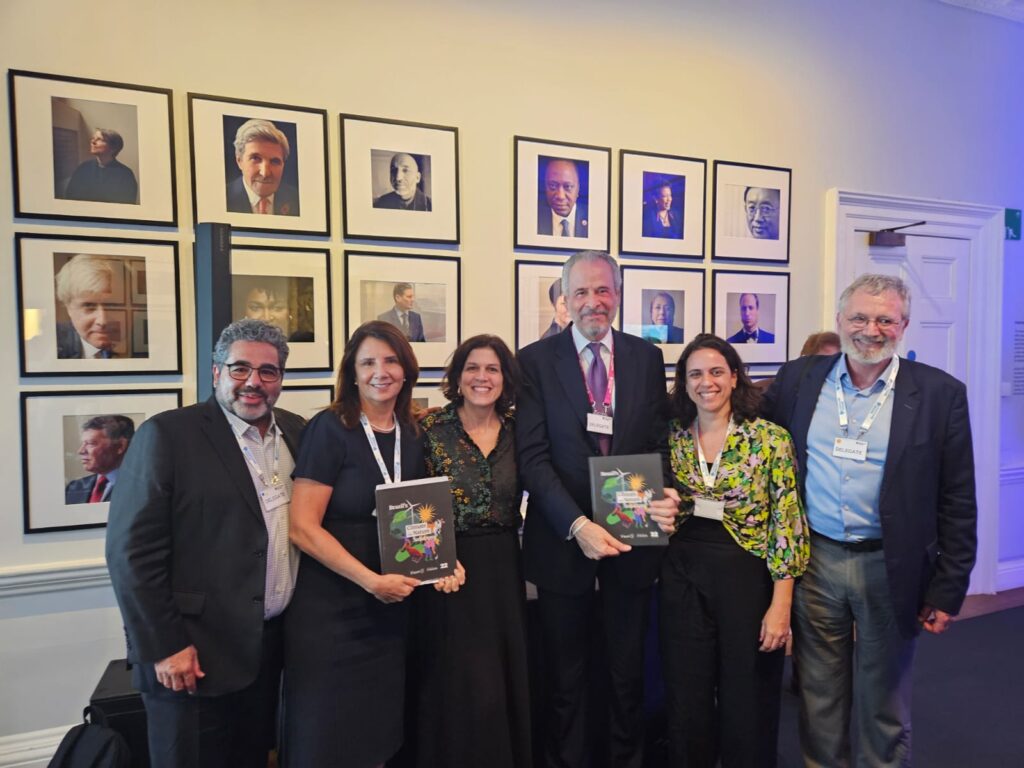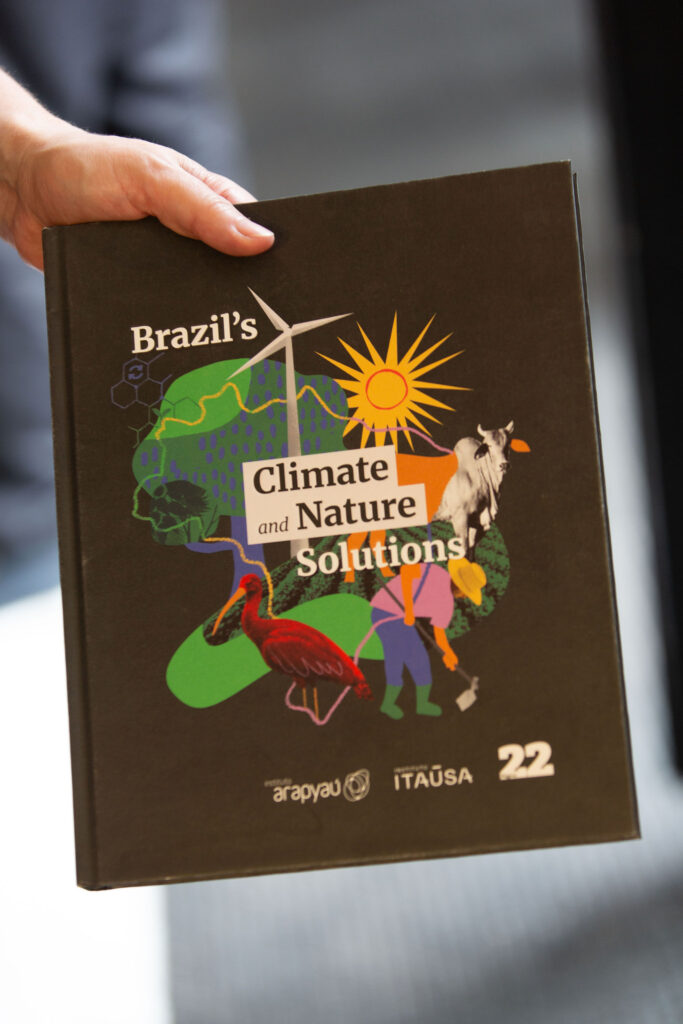
Brazil has shown, in practice, that it is possible to combine economic development with environmental conservation. To give visibility to these actions, Arapyaú and Itaúsa Institute have joined forces to launch the report Brazil’s Climate and Nature Solutions, a robust compilation of Brazilian initiatives that are already making a difference in the main greenhouse gas emitting sectors: agriculture and livestock, forests, energy, and circular economy.
The publication brings together concrete cases, with scaling potential, that demonstrate Brazil’s leadership in building a regenerative, low-carbon economy focused on the future. From advances in regenerative agriculture to the increasing use of renewable energy sources, through the valorization of nature as an economic asset, the country shows that it is ready to lead a new phase of the global climate agenda.
The report is the result of a direct call from the presidency of COP 30, which will be held in Belém in November, and is part of a national effort to move from speech to action. In total, 66 experts were interviewed in interviews conducted by the team of the magazine Página22, in addition to extensive data analysis and research. The solutions were organized into three categories: mature, rising, and promising.

In agriculture, one of the highlights is no-till farming, a technique consolidated in the country that protects the soil and reduces emissions by avoiding plowing. Also gaining ground are the use of bioinputs, which replace chemical fertilizers and pesticides, and regenerative agriculture practices, capable of restoring ecosystems while maintaining high productivity. Some of these techniques have already been showing results not only in emission reduction, but also in improving soil quality and crop resilience to climate change.
The forestry sector appears strongly, with examples of ecological restoration that combine conservation, income generation, and compliance with environmental legislation. A good example is the Arpa Program (Protected Areas of the Amazon), the largest initiative for the conservation of tropical forests on the planet. The publication highlights how the Forest Code and environmental regularization mechanisms can boost the recovery of degraded areas and generate value for the territory, while also increasing legal certainty for investors.
In the energy sector, the publication recognizes the expansion of renewable sources, especially solar and wind, which already represent 91% of the installed capacity in Brazil in 2024. Another emblematic example is the investment in the development of sustainable aviation fuels (SAF), such as that being done from the macaúba, a native Brazilian plant with high energy potential.
In the circular economy sector, still in its early stages in Brazil, the report points to promising paths. About 85% of industries already adopt some reuse, recycling, or reverse logistics practice, and there is growing interest in the use of biomaterials in the production cycle. With the imminent launch of the National Circular Economy Policy, the expectation is that these practices will become standard across the entire industrial sector.
We have all the conditions to exercise leadership in a new green and inclusive economy, and the private sector has already presented concrete solutions,” says Renata Piazzon, executive director of Arapyaú.
“Brazil can and should be recognized as a major provider of solutions to the climate and biodiversity crises. This means generating and distributing wealth from the protection of natural capital and the valorization of nature as an economic asset,” agrees Roberto Waack, president of the Arapyaú Institute Council. According to him, the solutions presented confirm that the country can be a global leader capable of offering products and services to mature, national, and international markets, meeting the climate urgency and transitioning to a low-carbon economy.
“With COP30 on the horizon, this is a unique opportunity to show that the country is ready to receive investments that protect biodiversity, generate prosperity, and help combat climate change,” emphasizes Ana Toni, executive director of the conference in Belém.